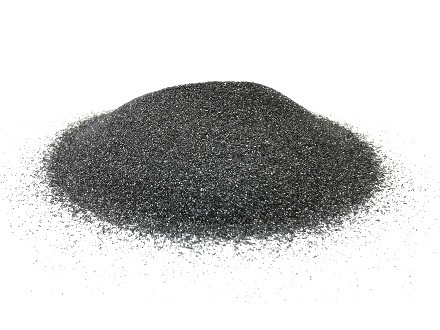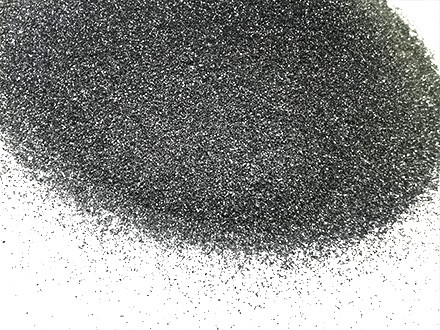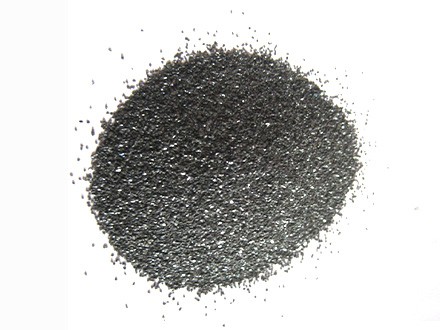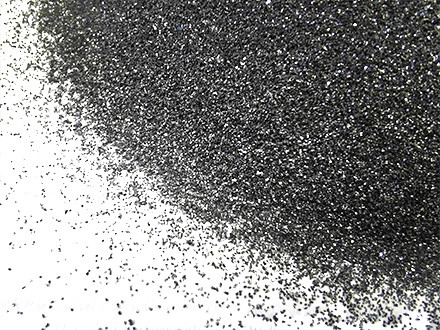Black Silicon carbide is an extreme hard carborundum, it is produced at high temperature in an electric resistance type furnace with quarts sand and petroleum coke.
Silicon Carbide is produced by a process involving the electrochemical reaction of silica(SiO2) – in the form of quartz mixed with Carbon(C) in the form of raw petroleum coke. The stoichiometric mixture is reacted in an electrical resistance furnace at a temperature up to 2500˚C to yield high quality crystals. The process is large furnace technology with a graphite electrode in the furnace center. The large crystals are then segregated, crushed, cleaned of magnetic impurities in high intensity magnetic separators and classified into narrow size fractions to suit the end use. Dedicated lines produce products for different applications.
Properties:
High hardness, retaining hardness and strength at high temperature.
High wear resistance.
Excellent thermal shock resistance with high thermal conductivity and low linear thermal expansion.
Good ability to withstand the strongest alkalis and acids.
Applications:
Lapping and polishing,
Blasting, surface Treatment, Rust Removal
Grinding wheels, sandpaper etc
Raw material of Knife Grinder, Whetstone, oilstone, grinding stone, abrasive stones and so on
Wear resistance parts
| TYPICAL CHEMICAL ANALYSIS | |
| SiC | ≥98% |
| SiO2 | ≤1% |
| H2O3 | ≤0.5% |
| Fe2O3 | ≤0.3% |
| F.C | ≤0.3% |
| Magnetic content | ≤0.02% |
| TYPICAL PHYSICAL PROPERTIES | |
| Hardness: | Mohs:9.2 |
| Melting Point: | dissociated at about 2300 °C |
| Maximum service temperature: | 1900℃ |
| Specific Gravity: | 3.2-3.45 g/cm3 |
| Bulk density(LPD): | 1.2-1.6 g/cm3 |
| Color: | Black |
| Particle shape: | Hexagonal |
| Modulus of Elasticity | 58-65×106 psi |
| Coefficient of Thermal Expansion | 3.9-4.5 x10-6/ ℃ |
| Themal Conductivity | 71-130 W/MK |
| AVAILABLE SIZES | |
| 8# 10# 12# 14# 16# 20# 22# 24# 30# 36# 40# 46# 54# 60# 70# 80# 10# 12# 14# 16# 20# 22# 24# 30# 36# 40# 46# 54# 60# 70# 80# 90# 100# 120# 150# 180# 220# | |






